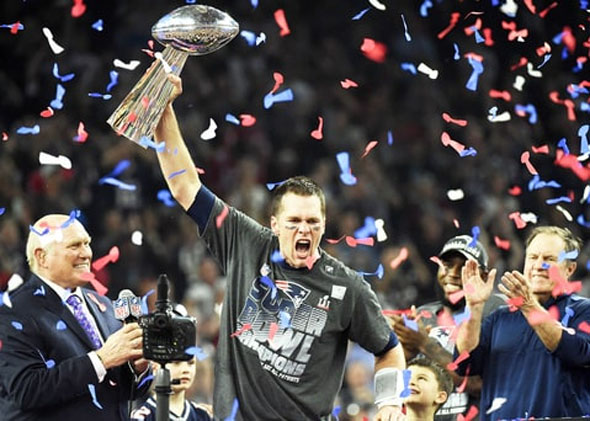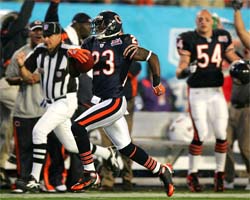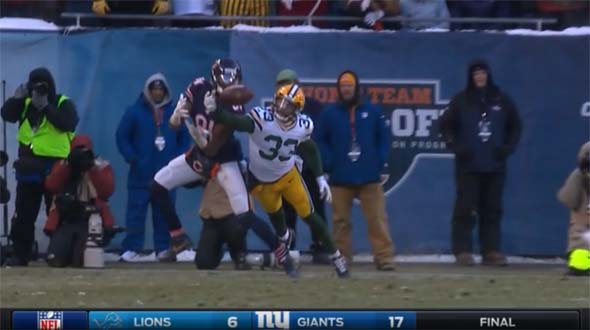
I don't think I've ever played a football game that feels like it truly nails special teams play. Madden has been especially bad at this phase of football for a very long time, and has largely neglected it year-in and year-out. Every now and then, a release comes out that focuses on special teams, but the upgrade is never as comprehensive as it should be. I was considering making a video about all of special teams, but that's too big a topic to tackle in a single video, so I decided that it would be best to make shorter videos that each focus on specific aspects of special teams play.
While drafting the script for my previous video about pass blocking and pass rushing, I had started thinking about issues with blocking and rushing in special teams, and thought I'd do a video about one specific specialist position that has been a personal crusade of mine for quite a few years now. I'll surely discuss more of Madden's special teams failings in future videos. But for today, I want to talk about how Madden completely fails to do justice to an oft-overlooked and under-appreciated specialist position: the longsnapper.
The full video on YouTube contains additional commentary and examples.
I'm looking at this specific position for two reasons:
- I played on special teams in high school and worked alongside our longsnapper. He spent extra time before and after practices honing that skill.
- And the 2nd reason I'm covering this topic is: unlike other highly specialized positions like holder and kickoff coverage gunners, Madden actually includes Longsnappers as a position in the depth chart, but has never included any mechanics or rules that actually make the longsnapper a meaningful position on your team, or which differentiate who is a good longsnapper versus who is not.
As for my high school teammates on special teams: there were several of us who never would have seen playing time if not for our special teams duties. Instead of resigning ourselves to a life on the bench, as some other reserves had done, we carved out niches for ourselves, so that we could see more playing time. We worked hard to earn our positions, and the coaches noticed the hard work (especially if it was extra-curricular in nature), and they rewarded us with extra rotational reps on both offense and defense in relief of tired starters. My experience has lead me to respect special teamers, probably much more than most football fans.
Some of us reserve players would have never seen playing time if not for our specialist roles.
A Knee-Jerk Reaction
I remember proposing a "Longsnapping" rating on a YouTube comment or Madden forum like 6 or 7 years ago, and received absolutely vitriolic responses that largely boiled down to "having the outcome of a game decided by a random fluke like a botched snap would be horrible game design." It's a sentiment that does makes a certain degree of sense. Determining the outcome of a match by a die roll does seem like it would be bad video game design -- at least, outside of digital craps.
But hold on a minute. Is it really bad game design...?
Running backs have a rating that determines their likeliness to fumble. Quarterbacks have several ratings that determine the accuracy of passes. Receivers have several ratings that determine their likelihood to catch a pass. Linemen have ratings that determine if they whif on a block. Defenders have ratings that determine the likelihood of missing tackles. DBs have ratings that determine whether they blow a coverage. Kickers have ratings that determine if they miss a kick. Every player has ratings that determine if they get injured on any given play. All of these ratings can affect the outcome of a play or an entire game based on a random die roll. Heck, even coaches have ratings that determine how much players develop in the offseason or how likely free agents are to sign a contract. Ratings semi-randomly deciding the outcomes of games or entire seasons is apparently OK for literally every other position both on and off the field, but somehow having a rating that determines if a snap or special teams hold is botched is a bridge too far?!
Nobody complains about other positions having ratings that can randomly decide a game.
To be fair to the critics: if you're playing a 5 or 6-minute quarter pick-up game online or in Ultimate Team, and each team is only getting between 3 and 5 possessions the entire game, it does make sense that you wouldn't want your one and only attempt at a punt or field goal to go awry because of a fluke like a botched snap. In such a shortened game, it would swing the game wildly in one direction or the other, with little-to-no time or opportunity for a team to overcome such an unfortunate outcome. (I keep saying, every installment in this series is probably going to refer back to that first essay about quarter length.) [More]
52c53c48-f188-452b-8dd5-d518c8a400d5|0|.0
Tags:Madden, Madden NFL, How Madden Fails to Simulate Football, EA, EA Sports, Electronic Arts, Tiburon, football, simulation, sports, YouTube, longsnap, longsnapper, special teams, field goal, punt, Tony Romo, Ace Ventura: Pet Detective
I've been hearing some complaints about the difficulty of kicking the football in Doug Flutie's Maximum Football 2019 (from Canadian developer Canuck Play). Many players seem to be having difficulties making field goals longer than an extra point. At the risk of sounding like an elitist, the kicking in this game really isn't that hard once you learn one simple thing about how it works. So I just wanted to put out a short post here to help out players who are struggling with the kick meter, so that they don't have to spend too long going through trial-and-error.
The kick trajectory defaults to a low, line drive.
Basically, the kick meter defaults to a line drive trajectory. This results in short, low kicks (like a squib kickoff). All you have to do is pull down on the right analog stick to raise the kick trajectory arrow. I usually raise the trajectory almost as high as it will go.
This design is counter-intuitive to most people who have played football games in the past, since most other games set the kick trajectory default to a basic kick that is usually "good enough" for most purposes. In many situations, you can just kick the ball without having to bother with aiming at all. NFL 2k5 and All Pro 2k8 continually dragged the kick trajectory off to the side, and forced you to have to adjust. This was (I assume) to simulate the pull of the wind and the kicker's handedness -- or is it "footedness"? But the height of the kick usually did not have to be adjusted.
Other games do not require as much adjustment of the kick trajectory.
Once you have the kick trajectory in Maximum Football aimed correctly, all you have to do is flick the stick down, then back up to actually make the kick. Flick the stick quickly in order to maximize the power your kicker puts behind it. The game doesn't have any meters or anything to give you feedback on whether you're doing it correctly, but the faster you flick the stick, the better. As far as I know, pulling the stick a little to the left or right will not cause your kicker to shank the kick left or right (as it would do in earlier versions of Madden).
Just aim your kick up with the right stick, then flick as quickly as you can with the left stick, and you should be making 50-yard field goals like a pro in no time!
With the proper trajectory, you'll be making 50-yard field goals like a pro!
Personally, I actually like that the game requires the player to have to manually aim every kick. It's not an automatic action like it is in so many other football games. It's not perfect, but it certainly isn't broken, the way that some people seem to think it is.
[More]

I hated seeing Belichick, Brady, and the Patriots win the Super Bowl too, but don't blame the rules!
Possibly bitter over the New England Patriot's unprecedented comeback victory in overtime of Super Bowl LI, a CBS Sports blogger is arguing that the NFL should adopt college football overtime rules. The author asserts "[...] the one thing college football does better than the NFL? Overtime, without a doubt.".
I don't want to sound rude, but: no. Absolutely not!
This idea that college football does overtime better than the NFL is a popular opinion that I just flat-out do not agree with, and which I -- quite frankly -- don't particularly understand. The college football overtime rules is something that I despise about that game. For many reasons.
College overtime isn't football
First of all, college overtime is a totally different rule set than the regulation game. The CBS writer claims that "The overtime rules in college football are straight forward." I disagree on that point, as college overtime is full of caveats of its own. After all, if it were so simple, then why would sites like Sports Illustrated and ESPN feel it necessary to feature posts titled "How does college overtime work?"? For example, teams are required to go for two-point conversions starting in the third overtime because the rules-makers realized they needed some way to limit multiple overtimes. It's a more complicated and arbitrary ruleset than the CBS writer gives it credit for, and it's no less complicated than NFL overtime rules which played virtually identically to a regulation game, except that it has a hybrid "sudden death" that allows for the game to continue if the opening possession results in a field goal.

Special teams stars like Devin Hester are
completely irrelevant in college overtime.
Perhaps most importantly: college rules completely ignore special teams. Have an explosive punt or kick returner like, say Devin Hester? Well, in college football, he never gets to step foot on the field - at least, not as a return man. Same goes for an exceptional punter (like Hall of Fame punter Ray Guy) or a standout kick coverage unit (like perpetually-snubbed gunner Steve Tasker).
Or maybe it's the exact opposite. Maybe your kick coverage unit is a huge liability. In college football overtime, that's a weakness that you don't have to worry about, and that the other team doesn't have the opportunity to exploit.
Either way, they all get to sit on the sidelines and watch because they're arbitrarily no longer part of the game. Special teams is part of football, and should be part of overtime. Whether it's straightforward or not, any overtime rule that neglects special teams is not football....
[More]
f6ce68ba-41a9-437c-84b4-2a39688ce71f|2|5.0
Tags:football, NFL, college, NCAA Football, tie, overtime, offense, defense, special teams, punt, kickoff, kick return, kick returner, field goal, touchback, touchdown, Super Bowl, Super Bowl LI, New England Patriots, Atlanta Falcons, Tom Brady, Rob Gronkowski, Bill Belichick, Devin Hester, Ray Guy, Steve Tasker, no true Scotsman, fallacy
The Chicago Bears' season has been over for a while now, but they had an opportunity today to play spoilers for the Green Bay Packers' playoff hopes. That didn't really happen, as the Bears settled for a game-tying field goal instead of attempting to convert a fourth and goal from the four yard line to win the game. The Bears had a first and goal at the three yard line with less than two minutes in the game and down by three (27-24). A penalty backed them up to the thirteen, and they weren't able to punch it into the end zone. Micah Hyde swatted a pass out of the hands of Cameron Meredith on third down, and John Fox decided to kick a tying field goal rather than going for the win.
Jordan Howard had rushed for over 90 yards, a touchdown, and a 5.3 yards per carry average over the course of the game, yet John Fox decided to throw the ball on third down and concede to the field goal. I would have put the ball in Jordan Howard's hands and given him both third and fourth downs to try to punch the ball four yards into the end zone. No way I would have settled for three.

Micah Hyde swatted a 3rd down pass that would have given the Bears a late lead.
Chicago had nothing to play for except beating Green Bay. Kicking a tying field goal had no strategic advantage. You have nothing to play for; there's no reason to play it safe. Let your bell-cow running back show what he can do.
Bad decision-making didn't end with the decision to play for the tie. The Packers got the ball back with about a minute left and no timeouts. An injury on third down stopped the clock, but the Bears refused to enforce the ten-second run-off. Aaron Rodgers followed that with a deep bomb, a clock-stopping spiked ball, and a game-winning field goal with three seconds left... [More]
d0996df0-142c-4c8c-96c2-07bc6505593b|0|.0
Tags:Chicago Bears, Chicago, Bears, Green Bay Packers, Green Bay, Packers, Detroit Lions, Minnesota Vikings, football, playoff, division, NFC North, field goal, John Fox, Jay Cutler, Matt Barkley, Jordan Howard, Tony Romo, Ha Ha Clinton-Dix
|

| 12 | | | | | | | 60 | | 11 | | | | | | | 55 | | 10 | | | | | | | 50 | | 09 | | | | | | | 45 | | 08 | | | | | | | 40 | | 07 | | | | | | | 35 | | 06 | | | | | | | 30 | | 05 | | | | | | | 25 | | 04 | | | | | | | 20 | | 03 | | | | | | | 15 | | 02 | | | | | | | 10 | | 01 | | | | | | | 05 |
|